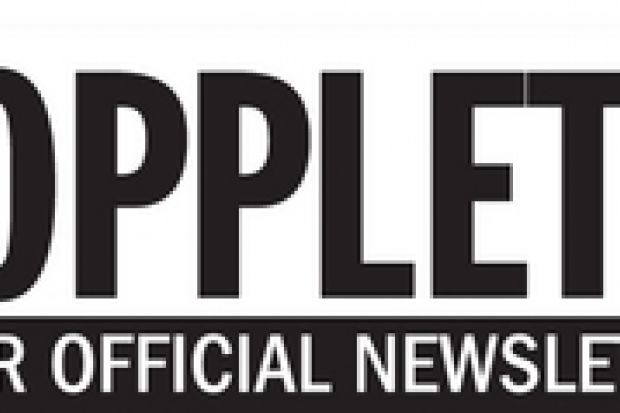"We have been inspired by the University of Aberdeen's innovative approach to waste," explained Jamie Targett, our Director of Corporate Affairs, as he announced the university's new policy for dealing with arts and humanities course material in the wake of the Browne Review.
Under the Aberdeen scheme, academics are required to save expenditure on cleaning by disposing of their own rubbish in the communal bins provided at the end of each corridor. Targett said that Poppleton would now be building on this principle by placing large arts and humanities skips at appropriate sites around the university.
In order to assist recycling, the skips will be differentiated according to anticipated size of input. "Our estimates suggest", said Targett, "that we will need rather more skip space allocated to such remaindered arts and humanities elements as novels and plays but rather less to volumes of poetry and philosophical texts".
Targett hoped that the new cleansing process would mean that it would soon be possible to walk through any area of the university without being in any way contaminated by what he described as "residual cultural detritus".
A step too far?
"In my view this would be tantamount to tendentiousness." That was the reaction of our Head of Internal Security, Mr D.B. Peering, to the claim by Ted Odgers that last week's unfortunate incident outside the Administration Building was "fully in line with established research excellence framework advice on the meaning of impact".
Speaking to The Poppletonian, Mr Odgers explained that he had been "very impressed" by the recent statement from the REF English panel in which it was claimed that "even a specialised monograph" might be said to have impact in that it "created employment for typesetters in India and printers in China".
He believed that this wider view of impact meant that his decision to drop two volumes of his new work on dialectical materialism from the roof of the Administration Building on to the vice-chancellor's car "could be readily accommodated by the new extended impact guidelines". "Many academics can claim that their work has left a mark. But how many like myself can point to a sizeable dent?"
Thought for the Week
(contributed by Jennifer Doubleday, Head of Personal Development)
"The early bird gets the worm. But the second mouse gets the cheese."
One that got away
Our vice-chancellor has admitted that he "seriously considered" standing for the presidency of Universities UK.
He was responding to last week's news that the appointment of Eric Thomas, vice-chancellor of the University of Bristol, to the post had been unopposed.
Although he admitted that his own failure to become a member of the Athenaeum Club meant that he lacked any personal knowledge of Professor Thomas, he felt that the new incumbent was displaying what could only be described as "radical leanings".
He instanced Professor Thomas' statement that under his direction "the UUK will ensure that the higher education voice is heard".
This would, declared our vice-chancellor, be a dangerous departure for an organisation primarily characterised in the past not so much by a voice as by "a restrained silence broken only occasionally by the sound of contented chuckling from Russell Group members".
Register to continue
Why register?
- Registration is free and only takes a moment
- Once registered, you can read 3 articles a month
- Sign up for our newsletter
Subscribe
Or subscribe for unlimited access to:
- Unlimited access to news, views, insights & reviews
- Digital editions
- Digital access to THE’s university and college rankings analysis
Already registered or a current subscriber? Login
